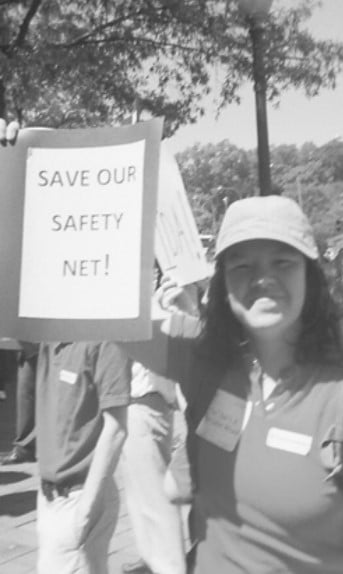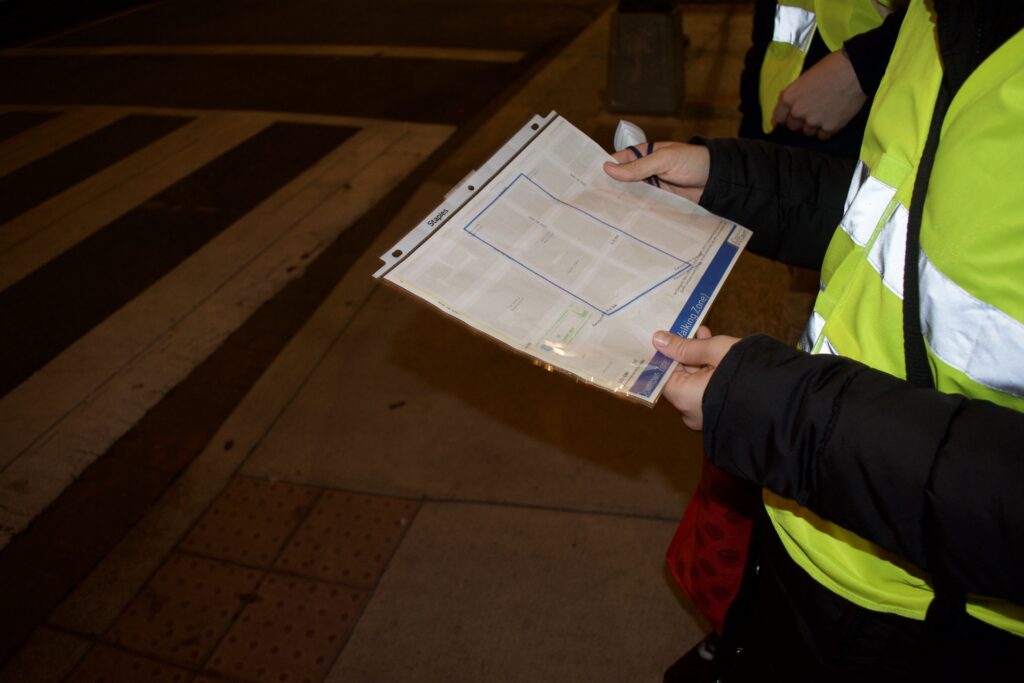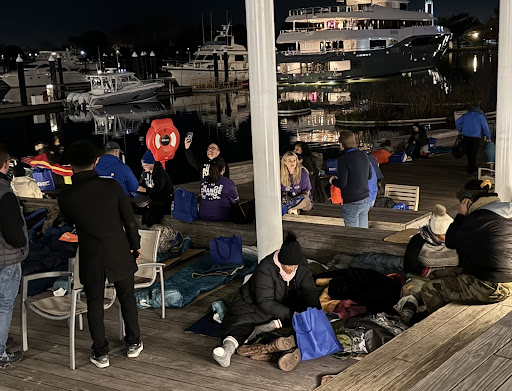SOS-DC Believes There is an Easy Solution
Health care provider reimbursements will be cut by $12 million in the proposed budget by Mayor Fenty’s office for 2011. Interim disability assistance will be cut by $7 million. Adult Job training will be cut by $4.6 million, according to the D.C. Fiscal Policy Institute.
May 5, 2010, a rally was held by D.C. residents and advocates along with the Fair Budget Coalition and Save Our Safety Net (SOS-DC) to protest against these and other budget cuts.
“We’re made up of D.C.’s higher earning individuals seeking to make sure that there is a balanced and fair economy,” Podshun says of SOS-DC, a grassroots effort of concerned District residents working to protect crucial city services by establishing a more progressive tax structure. “And we are here to protest cuts in the FY 11 budget.”

Legislative Director for the office of Councilmember At-Large Michael A. Brown, Kilin Boardman-Schroyer, says that the District is suffering from a $523 million deficit.
“We believe that there should be programs more focused on the underrepresented,” Schroyer says. “Councilmember Michael A. Brown proposes two new income tax brackets. One for individuals that make upwards of $250,000 and one for individuals that make upwards of $1 million.”
The Fair Budget Coalition and SOS-DC support a sliding-scale income tax on the wealthy, according to Kristi Mathews, Grass Roots Advocacy Coordinator for Washington Legal Clinic.
“In D.C., if you make more than $40,000 a year, you will be taxed the same as someone that only makes that much,” Mathews says. “We just want a more fair taxing system.”
Peter Edelman, Faculty Director for the Center on Poverty, Inequality, and Public Policy, spoke at the rally.
“There is always a discrepancy between the rich and the poor. The gap is the largest in D.C.,” Edelman says. “Tax isn’t a dirty word, when you have this level of poverty in our city.”

Present at the rally, Corey Hooks, 32, lives in Ward 3 and participates in programs provided by So Others Might Eat (SOME). Being homeless, Hooks relies on the programs provided by SOME for job training and housing.
“We need a chance,” he says. “How will we be able to receive benefits and return to school?”
SOME is one of the organizations that depend on government funding to pay their employees and provide services for people like Hooks.
The Fair Budget Coalition presented solutions to the Districts deficit on May 5 including contributions to a housing production trust fund, a cost of living adjustment to the standard deduction, and other key tax benefits, along with homeless services and To Assist Needed Families (TANF) cash assistance.
In the words of Corey Hooks, “It’s not fair.”







